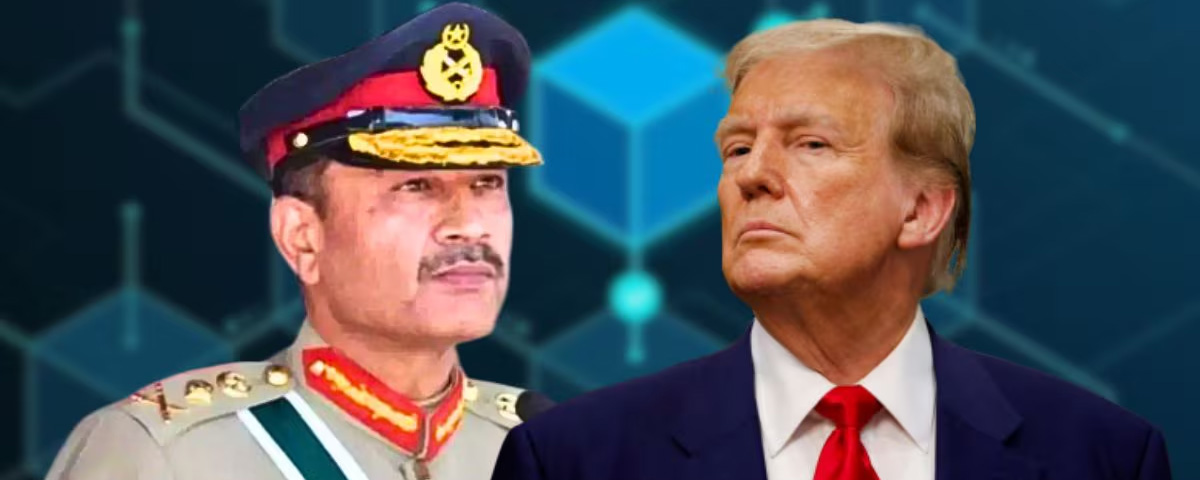Cover Story- America’s Pakistan Fantasy


Donald Trump’s recent courtship of Pakistan’s army chief has raised eyebrows in New Delhi. Is it a strategic masterstroke or a dangerous echo of Cold War-era delusions? This analysis unpacks the US’s persistent fascination with Pakistan’s military, viewed from an Indian perspective that sees beyond the flattery to the region’s complex realities and potential pitfalls of transactional diplomacy. Trump’s actions expose enduring misjudgments regarding Pakistan.
In the intricate dance of global diplomacy, where appearances often mask true intentions, the recent encounter between US President Donald Trump and Pakistan’s army chief, General Asim Munir, demands careful scrutiny. Viewed against the backdrop of potential US-Israeli strikes on Iranian nuclear facilities, Trump’s overtures should be understood not as a standalone event but as a calculated maneuver driven by a blend of expediency and, arguably, a profound misunderstanding of the region. Trump’s statement that he “was honoured” to meet Munir and his claim that Pakistanis “knew Iran better than most” were not off-the-cuff remarks but a deliberate message underscoring America’s perceived need for Pakistan’s diplomatic and potentially military support. However, this courtship of the Pakistani general, as viewed from New Delhi, is yet another example of America’s enduring delusions regarding Pakistan.
India can see through this US-Pakistan charade with remarkable clarity. There’s no need for an anxious or overtly vocal reaction. Instead, a measured approach – observe, evaluate, and act with precision when necessary – is the more prudent course. Trump’s decision to engage directly with Pakistan’s army chief, especially through the symbolic gesture of a White House lunch, is hardly surprising. It echoes the outdated logic of the Cold War era, where the US, impatient with the democratic complexities in a military-dominated environment, sought solace in the perceived order and control promised by generals.
Pakistan, a veteran of anti-communist Cold War alliances like SEATO and CENTO and a crucial US ally during the Soviet-Afghan war, is well-versed in the nuances of American strategic thinking. From Dwight D. Eisenhower’s affinity for General Ayub Khan to Ronald Reagan’s strategic embrace of General Zia-ul-Haq, a recurring pattern has emerged. However, as history has repeatedly demonstrated, courting generals might yield tactical advantages but often leads to strategic disasters.
This time, the subtext is particularly concerning. Trump’s praise of Pakistan’s knowledge of Iran is more than just rhetorical flattery. It signals to the Pentagon and certain factions within the Israeli right that the US, with Iran’s nuclear program in its sights, views the Pakistani military as a potential lever in the broader Middle Eastern calculus. The fact that the Pakistani populace generally holds sympathetic views towards Iran and views Israeli aggression with concern is seemingly irrelevant in this cynical calculation. Powerful elements in Washington appear to see the Pakistani army as an instrument of influence.
Against this backdrop, the hyped lunch with Munir was less a diplomatic courtesy and more a psychological inflation, a deliberate stroking of the ego of a man who likely perceives himself as a modern-day field marshal presiding over a captive state. Even as Trump boasted of his role in “averting war” between India and Pakistan – a patently false claim that New Delhi promptly rejected – he was likely aware of the war plans taking shape in Tel Aviv. The timing of the flattery of Munir, coming so close to the potential Israeli action, suggests a prelude to another power play in West Asia, not South Asia. By aligning the US with Israel, even if the American role is confined to diplomatic and intelligence support, Trump risks sacrificing strategic flexibility and diplomatic leverage. The Pakistani military might be willing to take extraordinary risks in acting against Iranian interests, provided Washington assures them of some tactical advantage vis-à-vis India. Pakistan’s official condemnation of Israeli strikes on Iran is rendered almost meaningless by the image of its army chief seated at Trump’s lunch table.
This situation raises vital strategic implications for India. First, it reaffirms the enduring reality that Pakistan’s military remains its only truly coherent institution, wielding unparalleled control over its foreign policy, nuclear doctrine, and internal security. Second, it underscores that the Western world, particularly the US ruling elite, continues to view Pakistan through a transactional lens. This is hardly new, but it is increasingly detached from the current geopolitical realities.
Prime Minister Narendra Modi’s recent rejection of Trump’s uncalled-for claim regarding the India-Pakistan ceasefire sent a clear message: India refuses to be dragged into a charade of equivalence. This is no longer the Cold War or a unipolar world. India doesn’t share a hyphen with Pakistan; what they share is geography, and increasingly, very little else. In the Trump-Munir exchange, New Delhi sees a populist president treating foreign policy as theatre, a militarized state desperate for global validation, and a global order flirting dangerously with instability.
Nevertheless, this spectacle demands vigilance. The symbolic coronation of Munir within Pakistan could embolden the military establishment to engage in brinkmanship. New Delhi cannot afford complacency. While it’s premature to determine whether this apparent reset in the US-Pakistan relationship is a genuine thaw or just a fleeting upswing, Trump’s flattery of Munir has opened the door to a broader psychological campaign detrimental to India’s interests: one that seeks to portray the Pakistani military as a stabilizing force, even as it acts as the principal source of regional instability.
India must continue to deepen its strategic relationships, not just with the US, whose political trajectory remains uncertain, but also with the EU, France, Japan, the Gulf countries, and Australia. The West must be reminded that if it seeks a genuine counterweight to Chinese power, it will not find it in the client military of a garrison state. It will find it in a vibrant democracy that stands as a bulwark against authoritarianism. India is not merely a “market” or a “partner”; it is the backbone of any reliable Indo-Pacific institutional architecture. The historical blunder of US diplomacy has often been its impatience, seeking short-term gains over long-term understanding. Its gestures may appear dramatic, but its memory is woefully short. India doesn’t need to constantly highlight its importance; it must simply act accordingly.
The recent spectacle may have been farcical, but it warrants serious reflection. As the Trump administration seeks to reshape old alliances based on discredited assumptions, the smile on Munir’s face as he sat across from Trump was not a smile of victory. It was the smile of a man flattered into tactical utility. India, having witnessed many Pakistani generals flattered before their eventual downfall, has no need for such illusions.